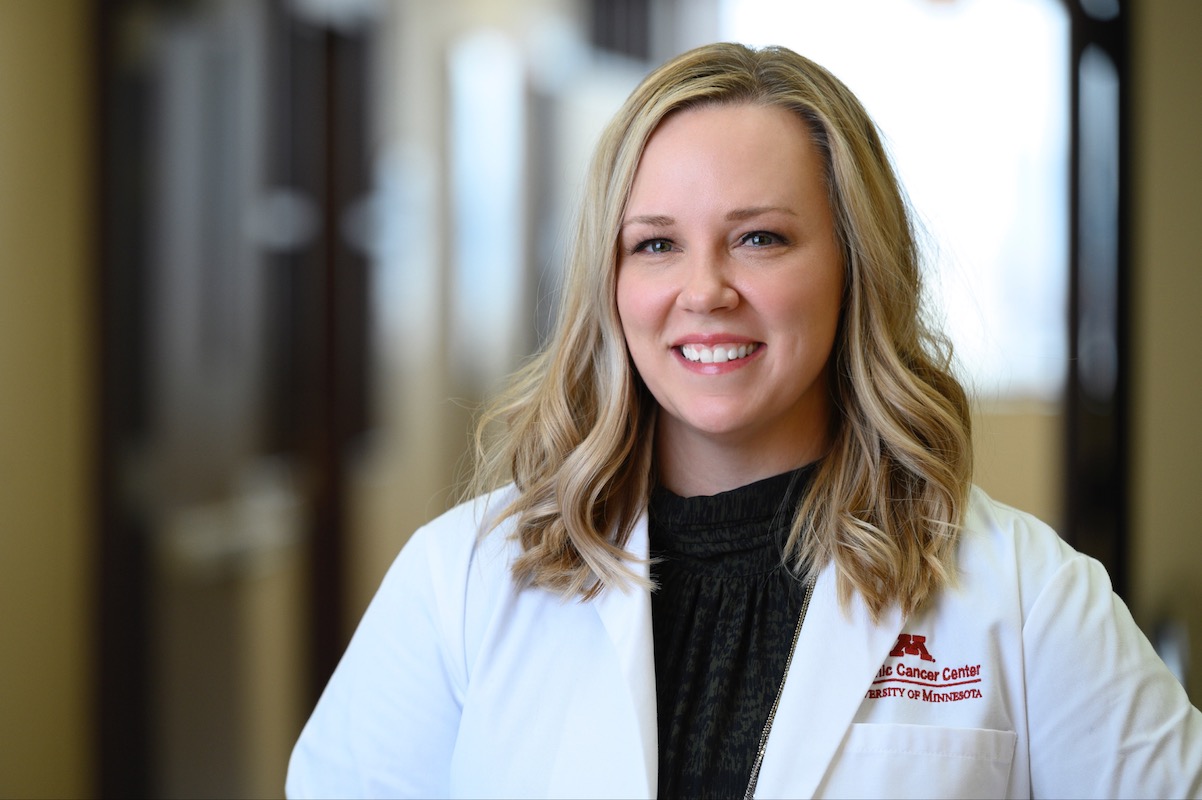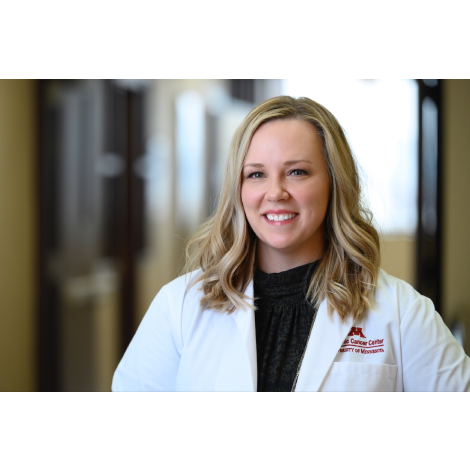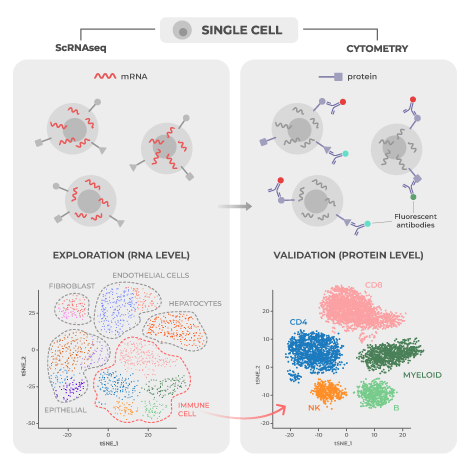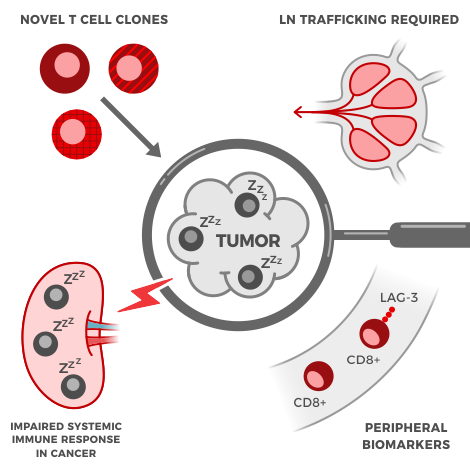The Customer

Shernan Holtan, MD
Associate Professor of Medicine, Department of Medicine, Division of Hematology, Oncology, and Transplantation at the University of Minnesota
The Research
My work centers around blood cancers. For many with conditions such as leukemia and myelodysplastic syndrome, the only potential cure is a stem cell transplant from a healthy donor. Even with the best possible match, these patients require immunosuppressive medications to prevent the new immune system from becoming overly activated. If the medications fail, the new donor immune system can attack the patient’s organs and tissues resulting in a life-threatening condition known as graft-vs-host disease.
For decades, scientists have been thinking about how to replicate the immune tolerance that develops during pregnancy as a model for transplantation tolerance – something I started to think about myself when I was pregnant with my first child 16 years ago. I was so interested in the potential for pregnancy hormones to calm an over-activated immune system that I conducted a phase I/II clinical trial of urinary-derived human chorionic gonadotropin (uhCG) – the main pregnancy hormone – for treatment of life-threatening GVHD (NCT02525029). Most, but not all, patients showed improvement with the treatment. I wanted to understand how the new donor immune systems did – or didn’t – respond to therapy with uhCG.
The Challenge
Although we knew what we wanted to study, we didn’t want to be too narrow in our focus. We wanted to leave some room for discovery. We tried scRNAseq but found our cryopreserved samples were too sticky and we couldn’t get good runs. The process also yields so much data – it can feel like too much to handle at times.
Experiments using basic flow cytometry suggested that Tregs were involved, but we wanted a deeper look at cell populations and to explore some hypothesis-driven biomarkers. Having struck out with scRNAseq and given the limitations of traditional flow cytometry, we needed another solution.
The Solution
Teiko came along at the right time. As soon as we saw that we would have the opportunity to start with a basic panel and customize some of the parameters, we knew this was what we needed. I could have envisioned needing to spend $50K building a basic panel, accounting for both reagents and staff time, so having this panel ready to go with a few open channels available for new markers afforded us the opportunity to get data turned around quickly.
“I could have envisioned needing to spend $50K building a basic panel, accounting for both reagents and staff time, so having this panel ready… afforded us the opportunity to get data turned around quickly.”
We of course had hopes, but we didn’t have any expectation that we would find anything, since human data is so messy. However, we were happy to see several very interesting hits, even with a stringent false discovery rate. We now have better insight to know what happens and why this therapy works.
I went into this project thinking that our field placed too much emphasis on T cells, but Teiko’s panel showed us that precisely targeting a specific T cell subset with the right therapy could have a major impact on patient outcomes. We also found several interesting signals in cell-bound and serum biomarkers. The answer to any complicated human disease is going to be more complicated than we like. This highly dimensional approach allows us to embrace that nuance and gives us more confidence moving forward.
Working with Teiko
Communication was seamless and quick. It was just like the Teiko team was across the hall. The analysis tools also helped us save 6 months or more, as I don’t have a PhD in bioinformatics, and those who do are often too swamped with requests to help.
“The analysis tools also helped us save 6 months or more…”
I especially liked working with Teiko’s webtool, which gave me the ability to play with the data. It felt really comfortable. We were all on the same team. Teiko felt like an extension of my research group.
Next Steps
I’m excited to see that clinicians have picked up on my research and are using uhCG to treat life-threatening acute GVHD today. I get messages and emails from people around the world with their experiences. The immune monitoring we performed with Teiko will be a huge plus for our phase II analysis. We often have to wait for weeks to get any insight into our patients’ trajectory, so any insights to change that path early in the disease course would be extremely powerful. The immune system is so complicated, and the reasons behind response to GVHD therapy poorly understood. Teiko helped us demystify at least a piece of the puzzle, and we look forward to more collaborations in the future.
Update!
This customer spotlight was originally posted in January 2023. In August 2023, Dr. Holtan published her work, including data generated by Teiko, in the journal Transplantation and Cellular Therapy. In February 2024, Dr. Holtan began her new role as the Chief of Blood and Marrow Transplantation, Professor of Medicine at Roswell Park Comprehensive Cancer Center.



